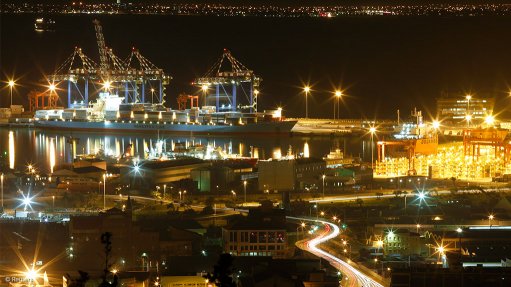
Cape Town harbor
Photo by: Reuters
The National Energy Regulator of South Africa (Nersa) has approved Burgan Cape Terminals’ licence for the development and construction of an independently owned and operated liquid fuel-storage and distribution facility at the Eastern Mole of the Port of Cape Town, in the Western Cape.
Nersa would release its reasons for the decision in January.
Transnet National Ports Authority earlier this year awarded a 20-year tender to Burgan Cape Terminals to build fuel-storage and distribution facilities to address the ongoing fuel shortages in the Western Cape.
In a statement on Tuesday, Burgan CEO Muziwandile Mseleku said the company was “very pleased” with the decision and thanked the regulator for conducting a considered, thorough and professional application process, which it believed acted as a “vote in favour of security of fuel supply in the Western Cape”.
He noted that the development of additional storage and distribution facilities was intended to meet the challenges of security of fuel supply and associated flexibility in the region, adding that the development not only addressed the country’s need to increase fuel infrastructure and capacity but it would also have a positive effect on the economy, on global skills transfer and on the transformation of the local energy sector.
The Nersa licence application was opposed by oil major Chevron, as it believed it would negatively impact its own 110 000 bl/d Milnerton-based Chevref refinery, producing gasoline, diesel, jet fuel, liquefied petroleum gas, fuel oil, asphalt and other products.
Mseleku, who believed competition in the country’s tightly-controlled fuel market was healthy, said oil companies in the Western Cape would continue to support Chevref's supplies in preference to imports and coastal supplies, even if the Burgan terminal was installed, as the supply of domestic fuel in the market was not only cheaper than imports and coastal supplies, but local refineries, including Chevref, were protected by legislation that ensured that domestic fuel supplies were exhausted before imports were approved.
Burgan was awaiting a decision by the Western Cape Department of Environment and Development Planning on its environmental-impact assessment – one which Chevron was also opposing, on similar grounds as its Nersa licence application objection, specifically that the economic impact of the development would result in the closure of its refinery.
Burgan had, in turn, laid a complaint of anticompetitive conduct against Chevron, as it believed Chevron, the dominant player in the Western Cape fuel market, was engaged in exclusionary conduct and consequently was in breach of Section 8 of the Competition Act.
Engineering News previously reported Mseleku saying that Chevron’s argument that the refinery would have to close was a red herring to hide its exclusionary conduct and block competition.